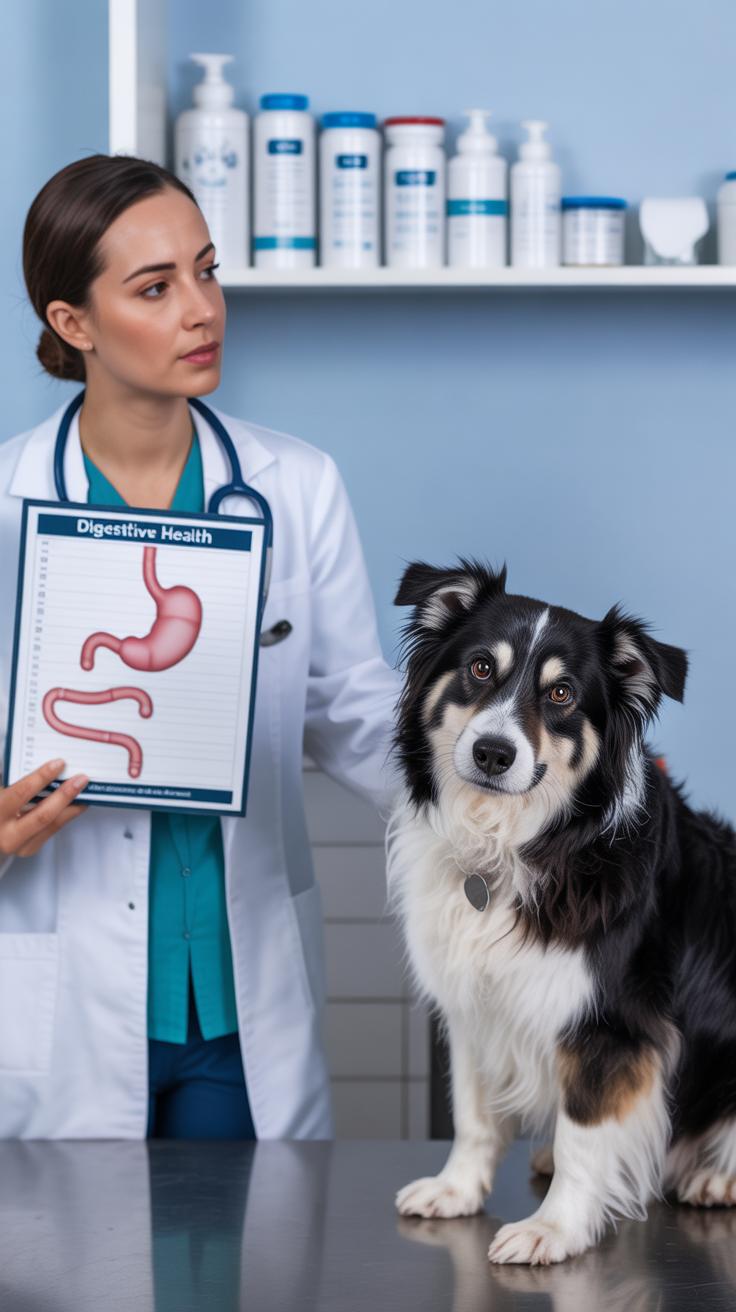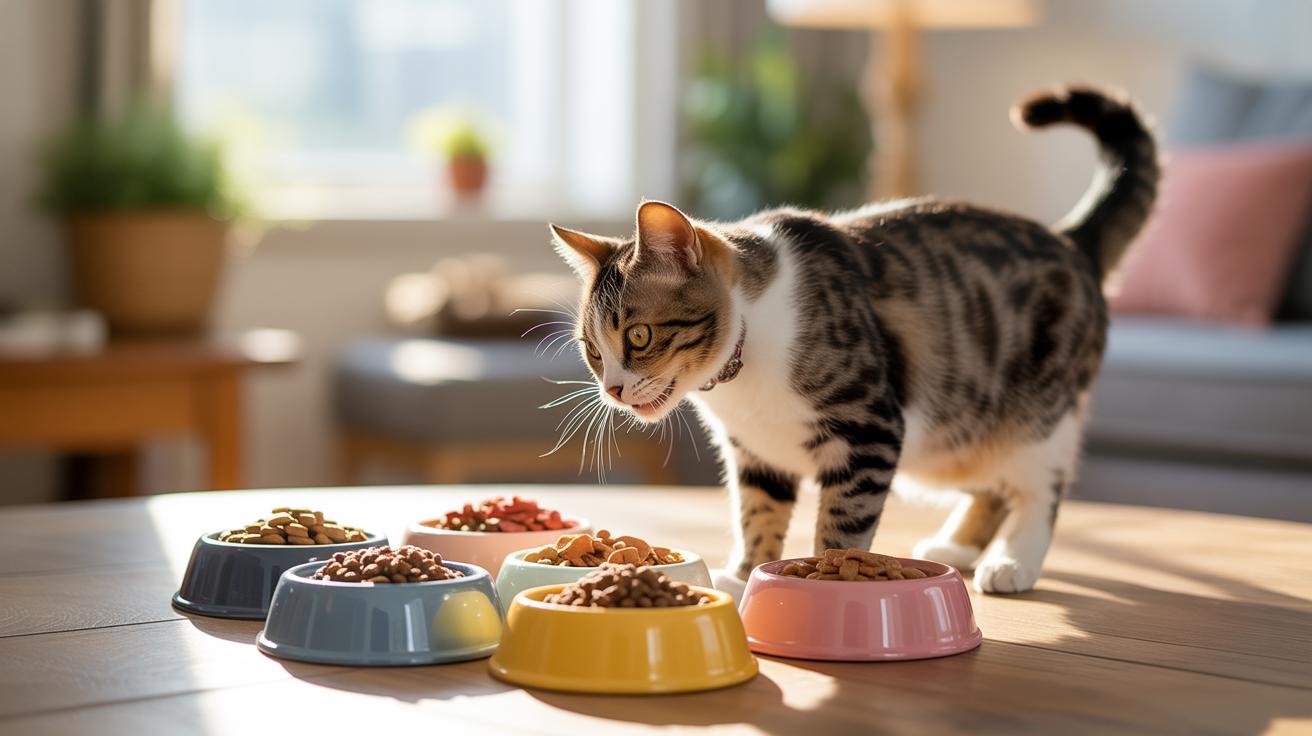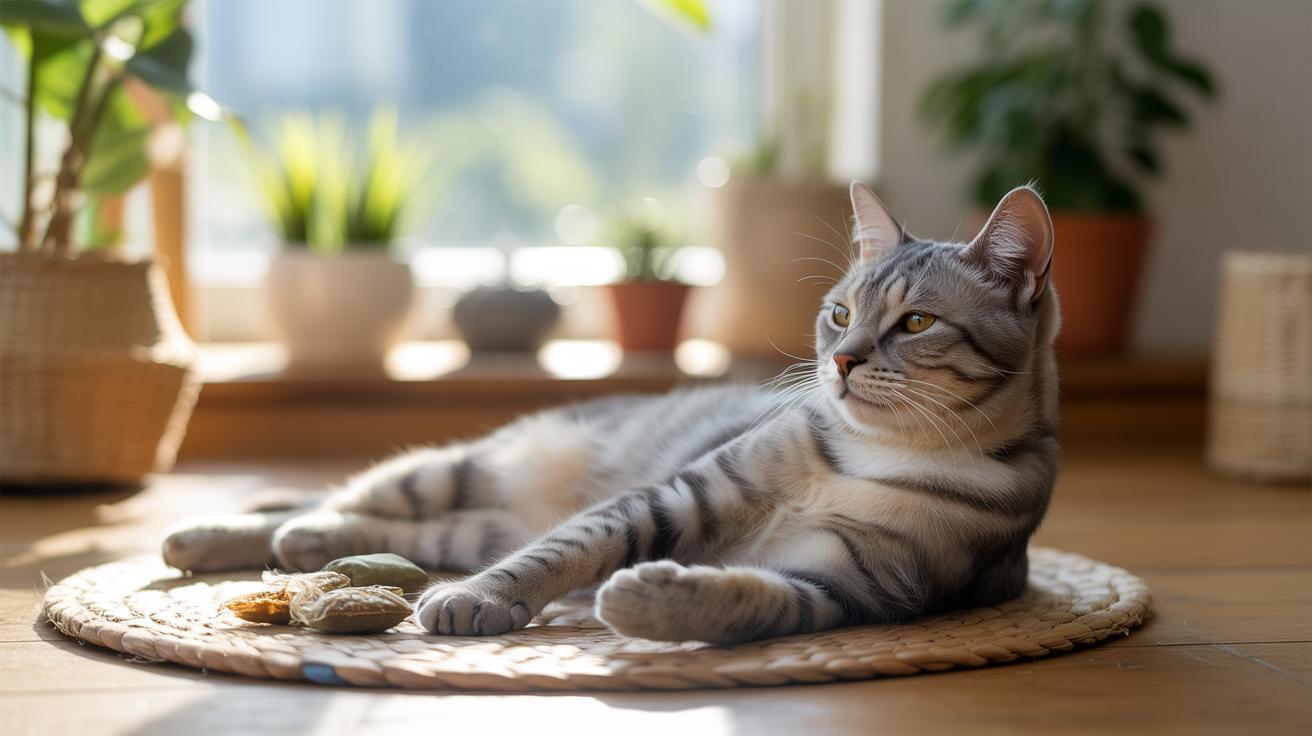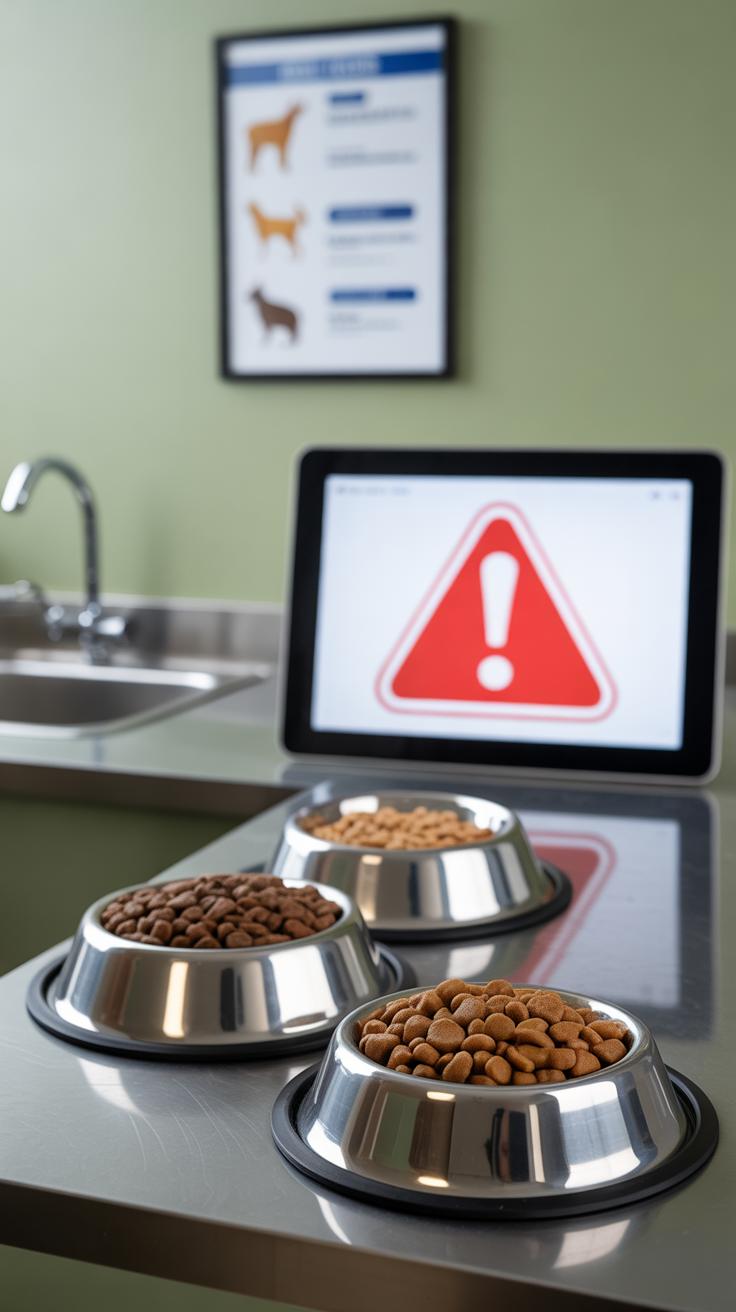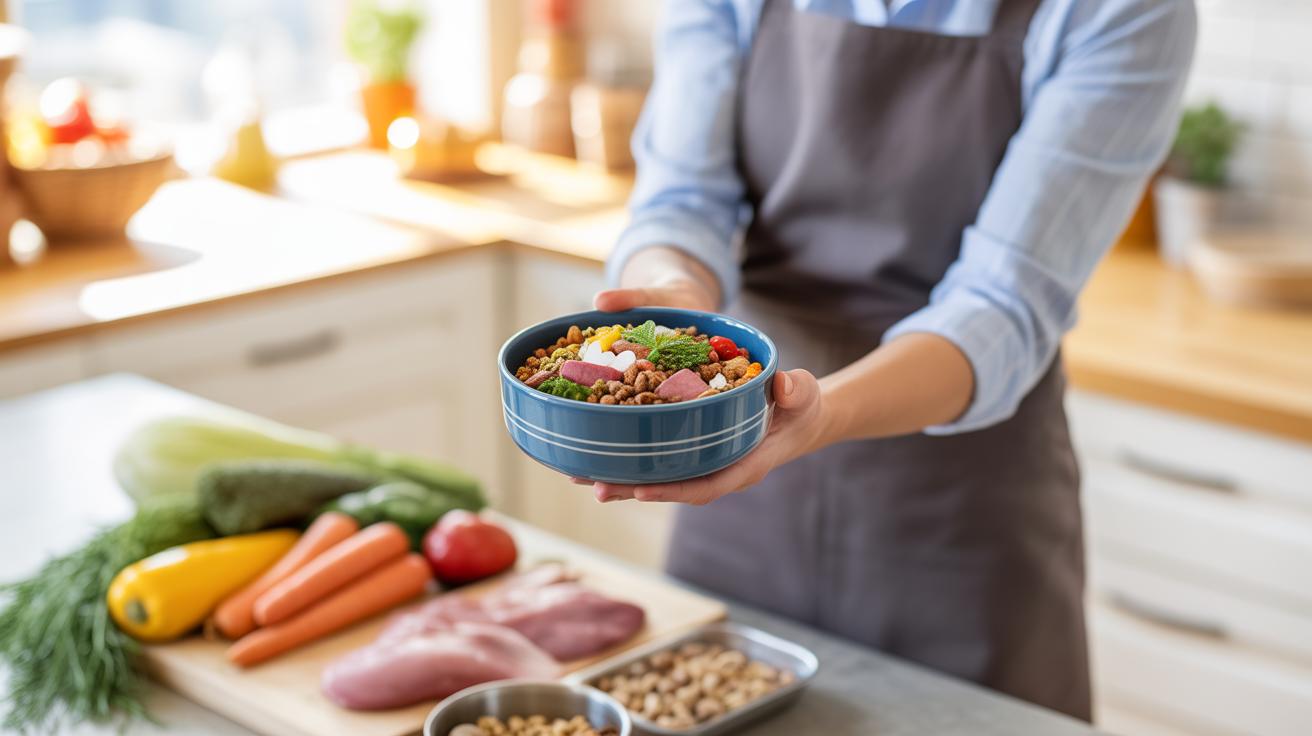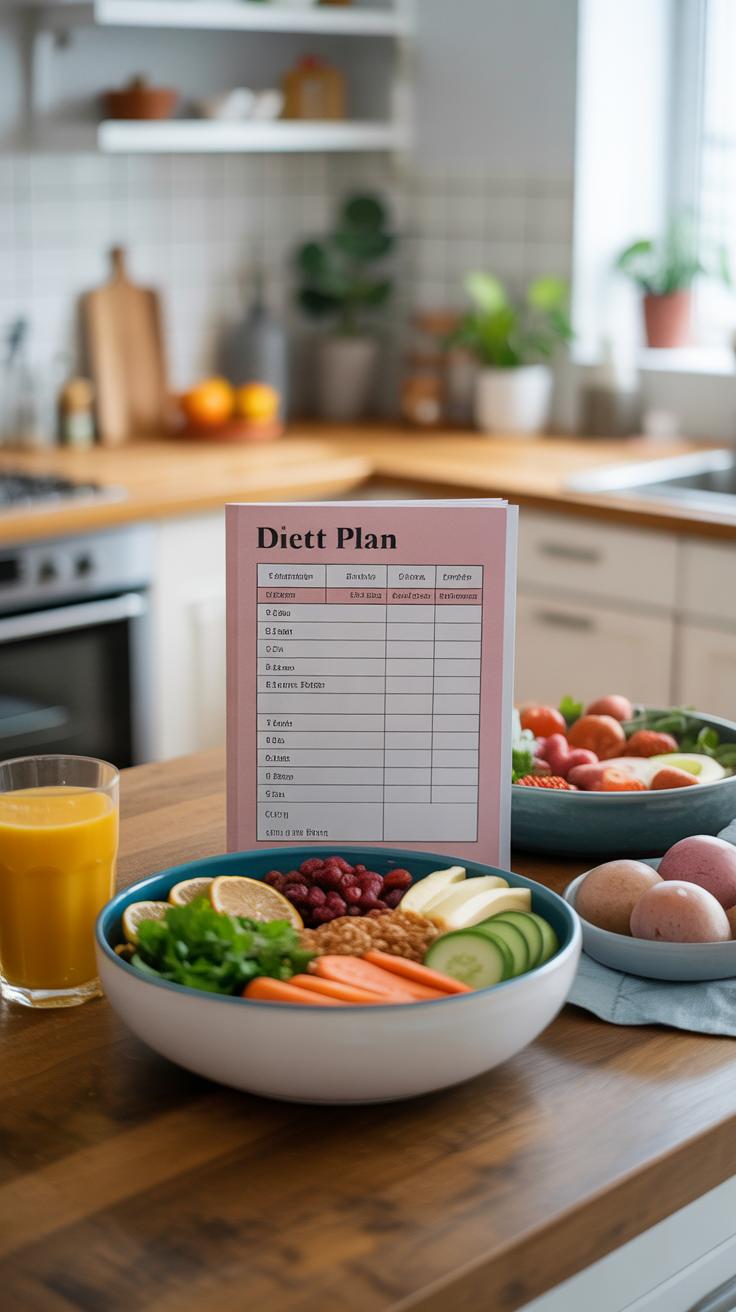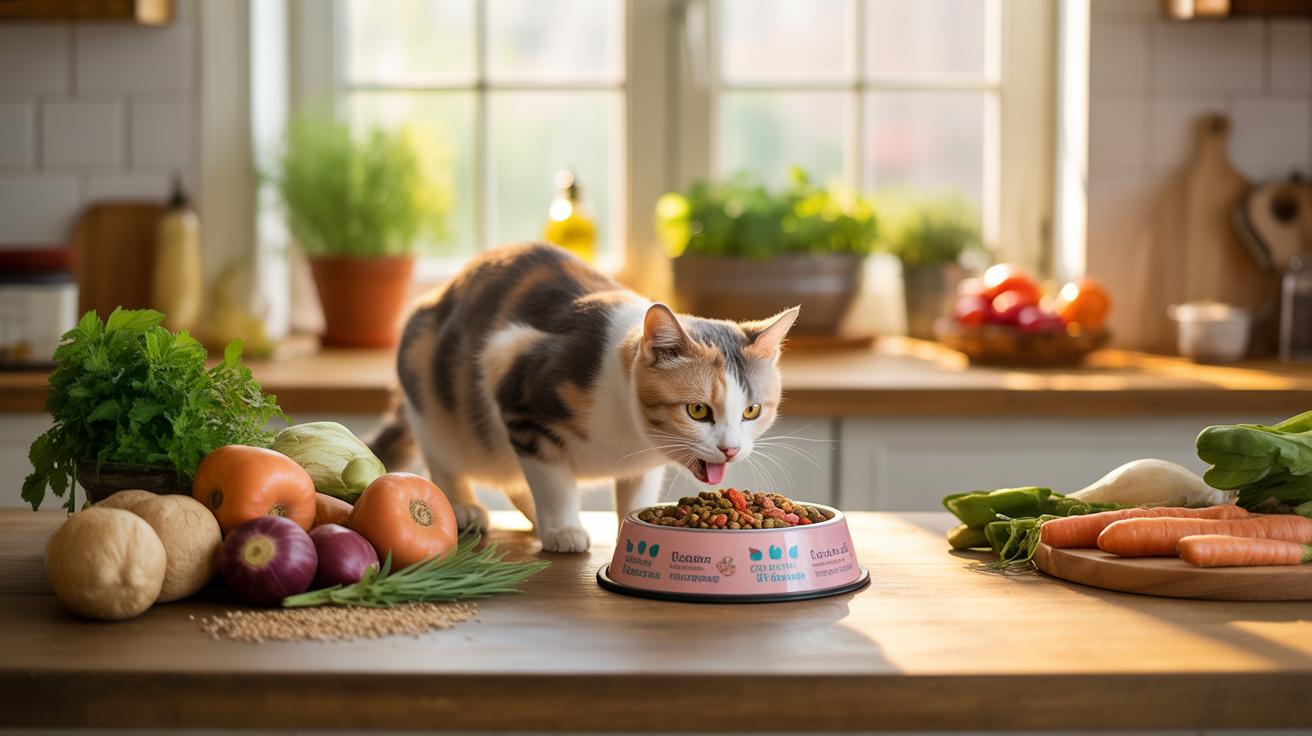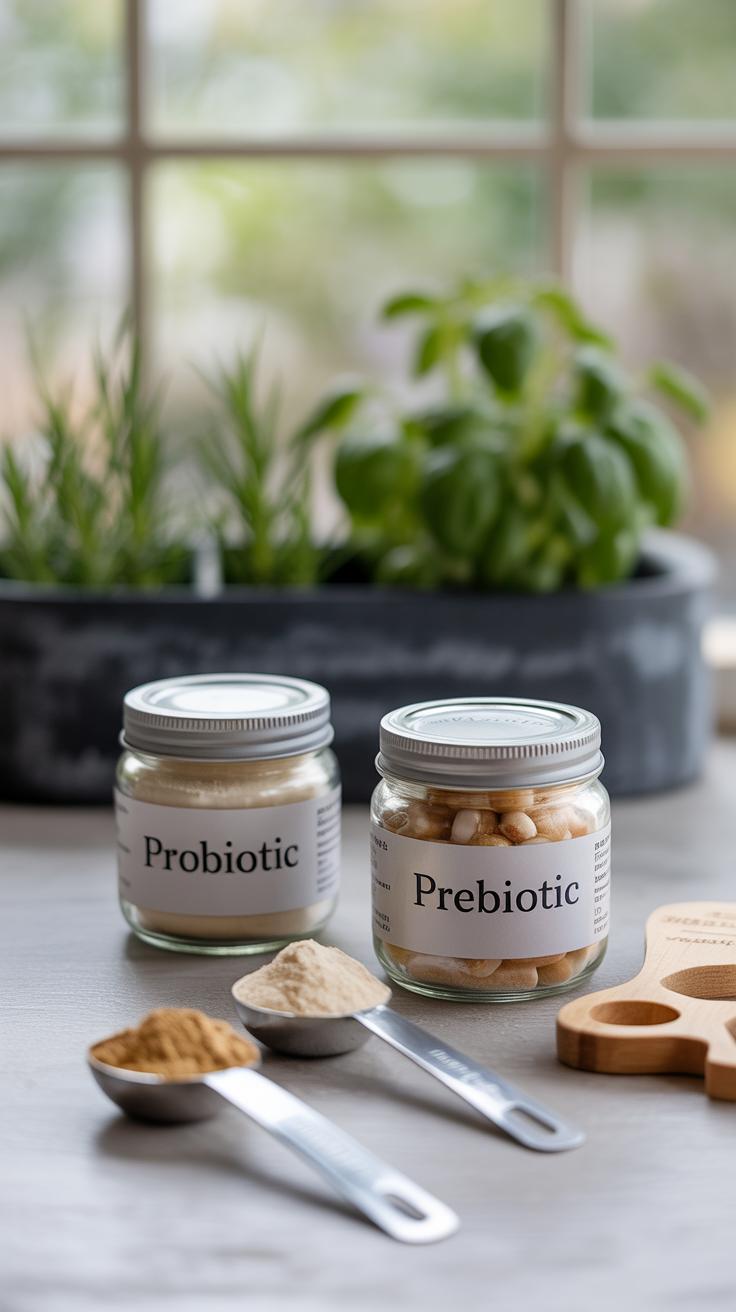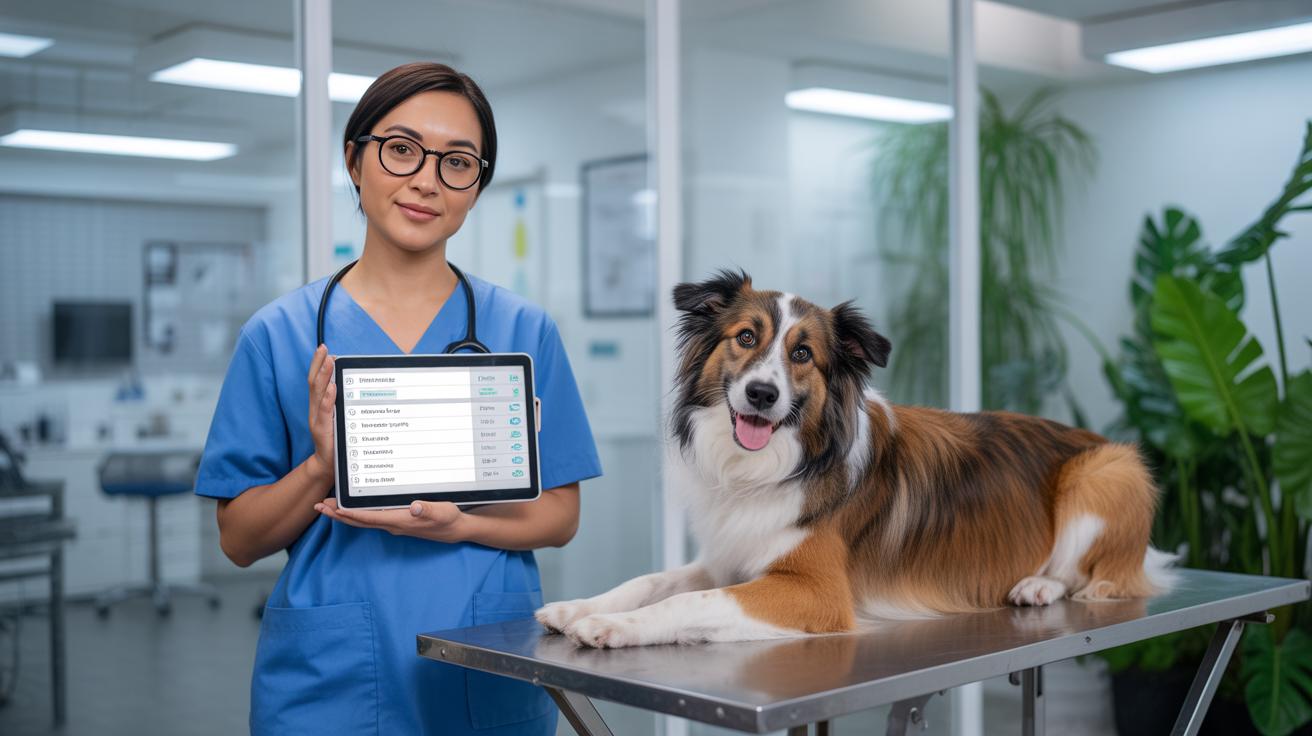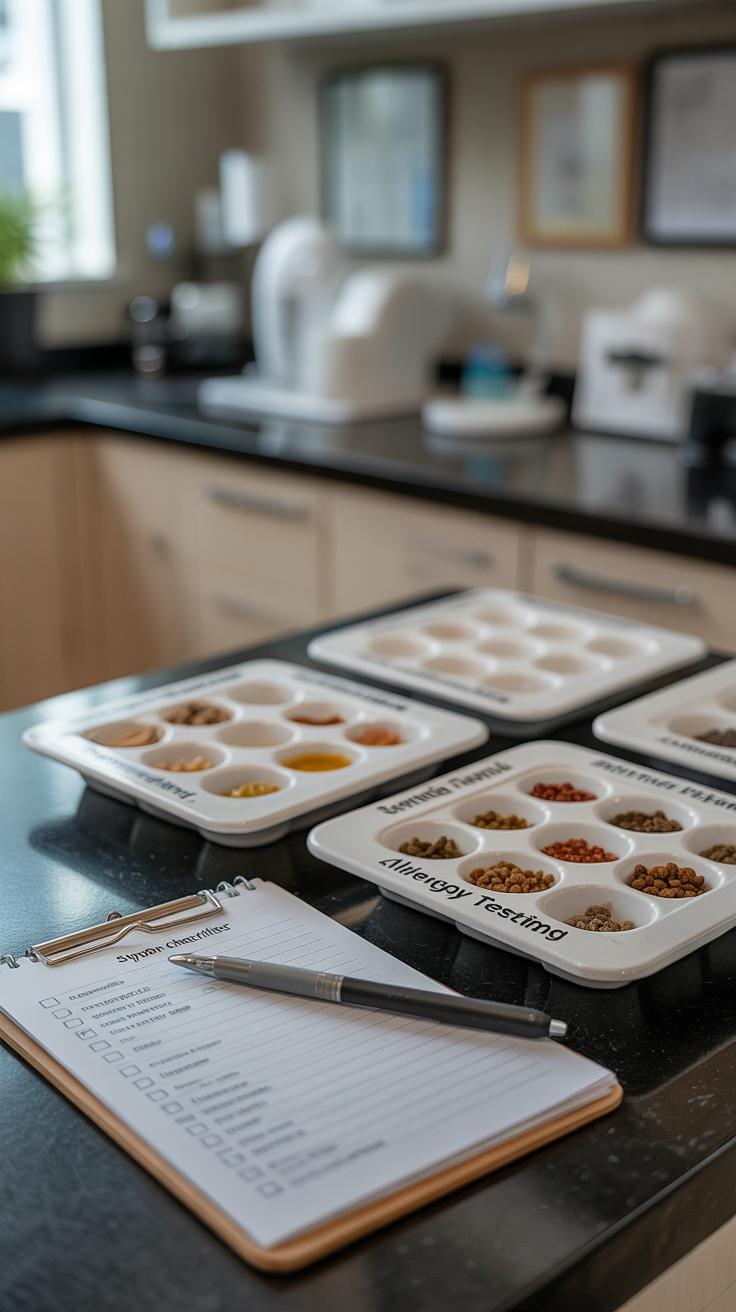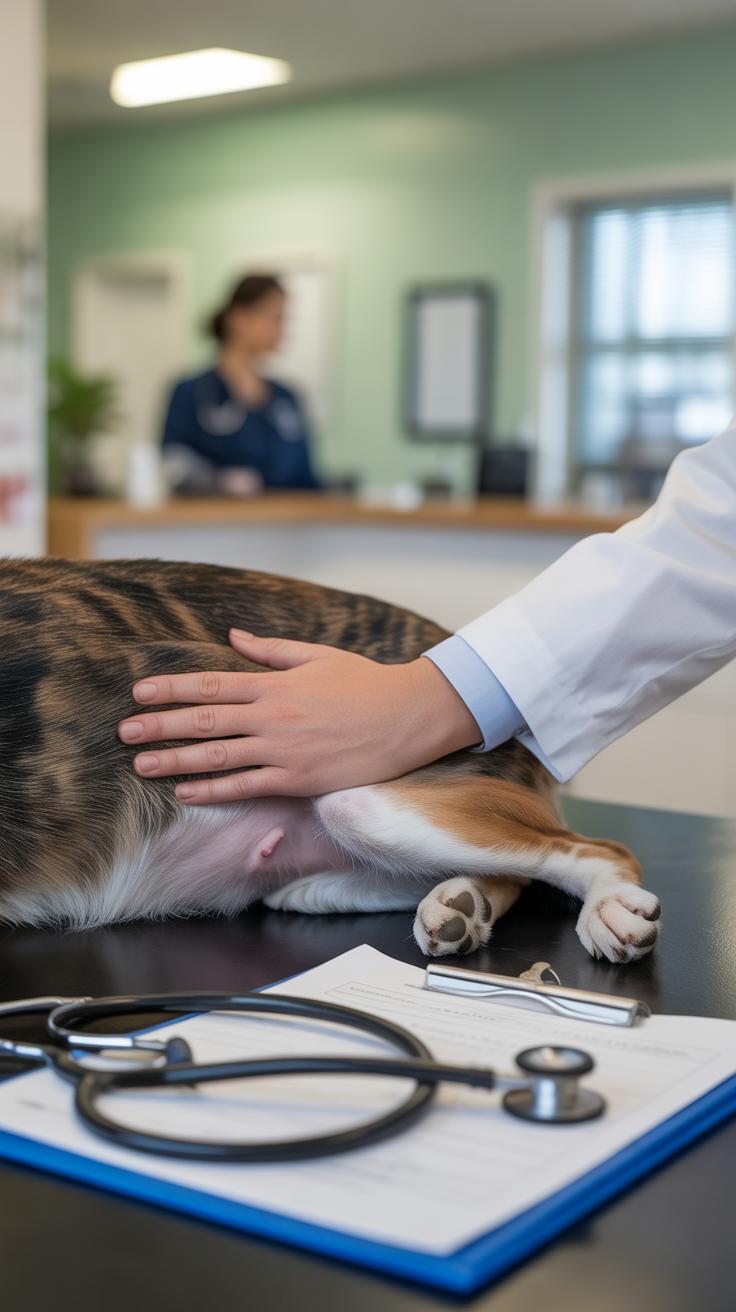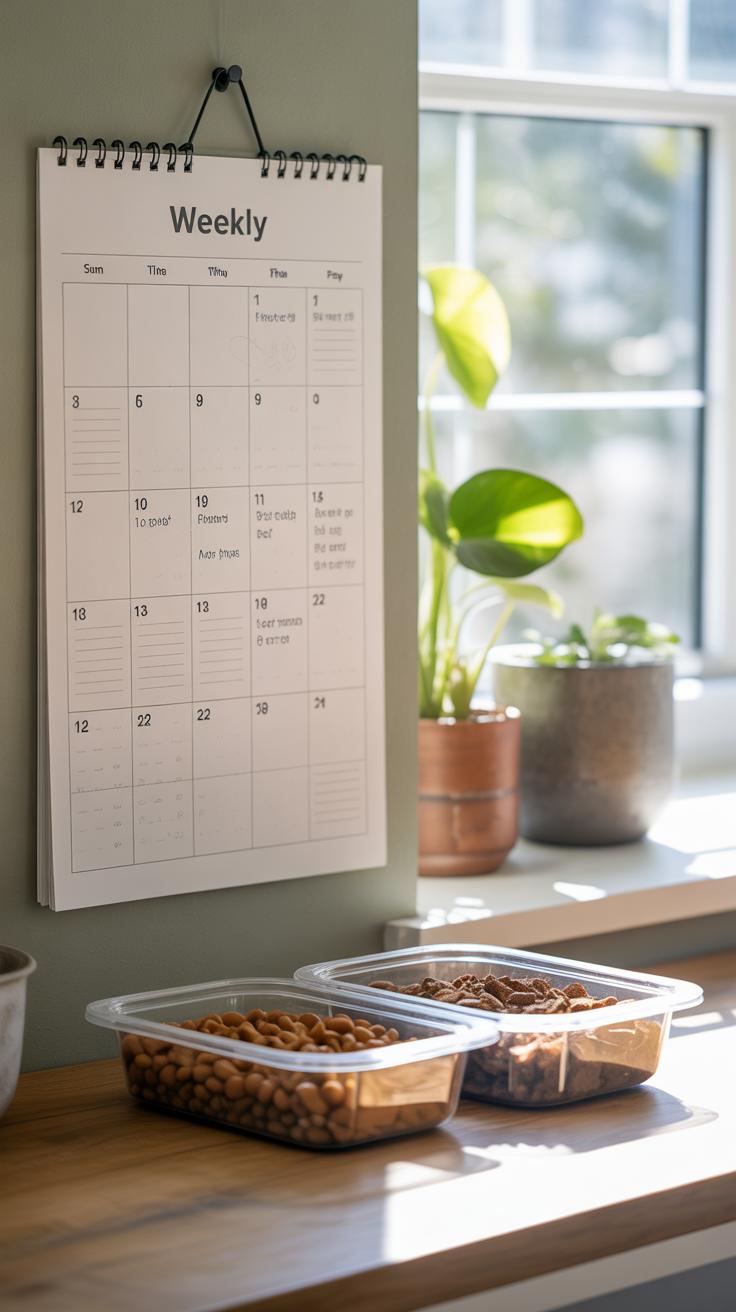Introduction
Digestive health plays a crucial role in your pet’s overall well-being. When your pet’s digestive system functions properly, it absorbs nutrients from food effectively and avoids discomfort like bloating or indigestion. Healthy digestion means fewer stomach issues and a happier, more active pet.
Improving your pet’s digestive health naturally involves simple lifestyle and dietary changes. This article explores practical tips and methods. You’ll learn about good feeding habits, beneficial foods, and natural ways to support digestion that you can start using today for your pet.
What is Digestive Health in Pets
Digestive health in pets refers to how well their digestive system processes food to extract nutrients and eliminate waste. It’s not just about the stomach or intestines working fine; it’s a complex balance involving many organs including the mouth, esophagus, stomach, intestines, liver, and pancreas. When all these parts work together smoothly, your pet gets the energy and nutrients they need to thrive.
Normal functioning means food travels through the digestive tract without discomfort, breaks down into usable components, and waste gets expelled regularly. If digestion is off, pets can feel sluggish or unwell, even if the symptoms aren’t obvious at first.
How Digestion Works
Digestion starts the moment food enters the mouth where chewing and saliva begin breaking it down. From there, it travels down the esophagus into the stomach, where acids and enzymes further break apart the meal. The small intestine takes over next, absorbing most nutrients through its lining into the bloodstream. What’s left then moves into the large intestine, where water is pulled out and waste is formed before leaving the body.
This process happens constantly and efficiently—though it may sound quick, it sometimes takes hours for a single meal to be fully digested. Interruptions anywhere along this path can cause discomfort or nutrient shortages.
Why Good Digestion Matters
A healthy digestive system supports your pet’s energy, immune system, and even mood. Nutrients fuel everything from muscle to brain function. When digestion falters, you might notice symptoms like occasional vomiting, diarrhea, bloating, or even changes in appetite or behavior.
Keeping an eye out for these signs is crucial because digestive distress can sneak up slowly. And even if your pet seems fine, poor digestion can affect their long-term health in subtle ways, like weakening their immune defenses or causing nutrient imbalances.
In the end, understanding and supporting your pet’s digestive health isn’t just about avoiding illness—it’s about helping them live their best daily life.
Common Digestive Issues in Pets
Pets, like humans, often face digestive troubles, and it can be tricky to spot at first. Some of the usual problems include constipation, where your pet struggles to pass stool regularly; diarrhea, which shows up as loose, frequent bowel movements; and indigestion, which might appear as bloating, gas, or discomfort after eating.
Recognizing these issues means paying close attention to your pet’s behavior. If your dog seems lethargic, has a poor appetite, or is straining during bathroom breaks, something might be off. Cats might hide more than usual or vomit repeatedly. Physical signs like swelling around the belly or unusual stool consistency also give clues.
The causes vary quite a bit. Sudden changes in diet, maybe switching food brands too quickly, can upset your pet’s stomach. Stress from new environments, loud noises, or even changes in routine might contribute as well. Sometimes, underlying medical conditions such as infections or allergies are at fault, making it harder to pin down the source without a vet’s help.
The Role of Diet in Pet Digestion
Your pet’s diet plays a huge part in how well their digestive system works. What they eat affects everything—from nutrient absorption to stool consistency. For pets, not all nutrients act the same way, and getting the right balance can be tricky. Protein is crucial, but too much or too little can create digestive upsets. Fiber also deserves attention; it helps regulate bowel movements and supports gut health, but not all fiber is equal. Some pets, especially dogs, do well with insoluble fiber, while cats might need a gentler form.
Fat also influences digestion—it provides energy but can slow down the gut if fed in excess. Then there are vitamins and minerals like zinc and B vitamins that support digestive enzymes. Sometimes we forget water’s huge role, even when it’s simple: hydration keeps food moving smoothly through the system. Have you noticed your pet’s digestion changes with different foods? That mix of nutrients often matters more than any single ingredient.
Foods That Support Digestion
Some natural foods help pets digest better, often because they contain specific fibers, enzymes, or probiotics. Pumpkin is a classic—packed with fiber, it can firm up loose stools or soften hard ones. Sweet potatoes bring a kind of fiber alongside vitamins that soothe the gut. Plain yogurt might surprise you; it contains live bacteria that promote a healthy gut environment, especially if your pet tolerates dairy.
Green beans and carrots offer gentle fiber and water content, helping prevent constipation. Bone broth is another interesting one—it’s rich in gelatin which may protect the lining of the digestive tract. And then there’s ginger, known to ease digestive discomfort — although it should be given cautiously and in small amounts. Of course, not every pet will love or tolerate these foods the same way, but they’re worth considering when you want to support digestion naturally.
What to Avoid Feeding
On the flip side, some foods pose real risks to your pet’s digestion. Fatty and fried foods are common offenders; they can lead to diarrhea or even pancreatitis, particularly in dogs. Chocolate and artificial sweeteners—especially xylitol—are toxic and can cause severe issues. Bones, often seen as natural treats, may cause constipation or even internal blockages.
Dairy is another tricky one; many pets don’t digest lactose well. Feeding them cheese or milk could lead to uncomfortable gas or loose stools. Too many grains or fillers commonly found in cheap pet foods might disrupt the balance of nutrients and irritate sensitive stomachs. Even some human snacks, like onions or garlic, are toxic or at least harmful to digestion. Keeping an eye on what clearly stresses your pet’s stomach will save both of you headaches.
Using Probiotics and Prebiotics
Define probiotics and prebiotics and their benefits for your pet’s digestive system
Probiotics are live microorganisms, usually bacteria, that live in your pet’s gut and support digestion. They help keep the balance of good and bad bacteria, which can be disrupted by illness, stress, or diet changes. Prebiotics, on the other hand, are types of fiber that feed these good bacteria, encouraging their growth.
Including both in your pet’s diet can help ease digestion, reduce issues like diarrhea or constipation, and even support the immune system. It might seem a bit odd to think of feeding bacteria, but these tiny helpers play a big role in how well your pet absorbs nutrients and stays healthy.
How Probiotics Help Pets
Probiotics maintain a healthy gut flora by competing with harmful bacteria and reducing their ability to take over. When your pet’s digestive system is balanced, it often means fewer tummy troubles and better nutrient absorption. Sometimes pets get upset stomachs from antibiotics or stress; probiotics can help restore order.
That said, probiotics don’t work the same way for every pet. Some might respond quickly, while others show little change. It’s a bit of trial and error, but the benefits often include smoother digestion and an overall better gut environment.
Sources of Prebiotics
Prebiotics come from natural plant fibers that your pet’s body can’t digest but their gut bacteria can. Common sources include chicory root, bananas, oats, and certain vegetables like asparagus or garlic. Feeding your pet foods with these fibers supports the growth of good bacteria, which can improve bowel movements and nutrient uptake.
Sometimes, pets might resist new foods, especially veggies, making it tricky to increase prebiotic intake. In those cases, supplements can help, but it’s worth trying natural food sources first. You might notice your pet’s digestion improving slowly, not overnight, which is pretty normal.
Hydration and Its Impact on Digestion
Water’s Role in the Digestive Process
Water plays a surprisingly crucial role in your pet’s digestion, much more than just quenching thirst. It helps break down food so nutrients can be absorbed properly. Without enough water, digestion can slow down, making it harder for your pet to get energy and nutrients from their meals. Plus, water softens stool, which eases bowel movements and helps prevent constipation. I once noticed my dog struggling occasionally with firm stools, and it turned out a small increase in daily water intake made a clear difference.
Think about it—if your pet’s not drinking enough, their digestive system may not perform as smoothly as it could. It’s a simple thing that sometimes gets overlooked but really matters for overall gut comfort and health.
Tips to Keep Pets Hydrated
Getting pets to drink enough water can be tricky, especially if they’re picky or just don’t seem that interested in water itself. Here are some practical approaches that might help:
- Offer fresh water several times a day—sometimes pets get bored with stale water.
- Use a pet fountain; some animals prefer running water and will drink more.
- Add a bit of flavor by mixing in a splash of low-sodium broth (chicken or beef) to make it more enticing.
- Wet food can boost hydration, so consider mixing in canned meals or adding water to dry kibble.
- Place multiple water bowls around the house, especially in favorite resting spots, so water’s easy to access.
If you notice your pet is drinking much less than usual, it might be worth checking in with a vet just to be sure. Hydration isn’t just about comfort—it supports digestion every single day.
Physical Activity and Digestive Health
Getting your pet moving can do more than just keep their muscles toned—it plays a significant role in how well their digestive system works. When pets engage in regular exercise, their bodies naturally stimulate digestive processes. You might notice that after a brisk walk or a lively play session, your pet seems more comfortable and energetic, which often ties back to better digestion. Movement encourages the muscles in the gut to contract rhythmically, helping food move through more smoothly and reducing the chances of constipation or sluggish digestion.
Exercise also improves blood circulation, which supports the organs involved in digestion—kind of like giving the digestive system a little boost. It’s interesting to see how even moderate activity can lead to noticeable changes, such as reduced bloating or fewer digestive upsets.
Effects of Movement on Digestion
Regular physical activity isn’t just about burning calories for pets; it also helps with:
- Enhancing gut motility—movement stimulates the intestinal muscles, pushing food along efficiently.
- Reducing the risk of digestive discomfort, such as gas or bloating.
- Helping maintain a healthy weight, which indirectly supports digestion by preventing pressure on the abdomen.
- Supporting the gut microbiome through improved overall metabolism.
Sometimes, when pets are inactive, digestion slows down, increasing the chances of constipation or other issues. So, getting your pet moving might be one of those simple things with a surprisingly good impact.
Types of Exercise Suitable for Pets
What kind of exercise works best? That depends on your pet’s species, age, and health, but some options tend to help digestion without causing stress:
- For dogs, regular walks mixed with short play sessions like fetch.
- Gentle running or hiking for pets that enjoy more intensity.
- Indoor play, especially for cats, including chasing toys or climbing structures.
- Light swimming, which is low impact and can be particularly good for pets with joint issues.
Even simple activities, like encouraging your pet to explore different spaces or textures, can make a difference. It might feel a bit slow at first, especially if your pet is used to resting a lot, but easing into regular movement often shows digestive improvements over time. Have you noticed how your pet responds after a good play session? Sometimes, their appetite improves, or you see fewer digestive complaints.
Recognizing and Managing Food Intolerances
Food intolerances in pets occur when their digestive system struggles to properly process certain ingredients or nutrients. Unlike allergies, which involve the immune system, intolerances mainly affect digestion and can cause lingering discomfort. If you notice your dog or cat having upset stomachs after meals, it might be due to an intolerance rather than a full-blown allergy. It’s not always obvious at first—sometimes the symptoms are subtle or inconsistent, and that can make pinpointing the cause tricky.
Common signs include:
- Loose stools or diarrhea
- Bloating or excessive gas
- Occasional vomiting
- Excessive licking or scratching around the mouth
- Lethargy or reduced appetite after eating
Among typical offenders are dairy products, wheat, soy, and certain proteins like beef or chicken. A cat that suddenly develops gastrointestinal upset might be reacting to a new protein introduced in its diet. Dogs can also struggle with grains or additives.
Figuring out which foods cause trouble requires patience. You might try an elimination diet—removing suspicious ingredients one at a time, then reintroducing them carefully. Keeping a food diary helps track reactions and symptoms. Once identified, avoiding the trigger food is key, ensuring you still provide balanced nutrition. It’s a bit like detective work, but necessary to ease discomfort and help your pet thrive without digestive hang-ups.
Natural Remedies for Digestive Support
When your pet struggles with digestion, natural remedies can offer gentle relief and help maintain balance. Some herbs and supplements stand out for their digestive benefits and have been used safely for years. For example, slippery elm powder is known to soothe irritated digestive tracts. It forms a protective layer that eases inflammation—I’ve seen it calm mild tummy troubles in dogs after stressful events.
Other helpful options include ginger, which may reduce nausea and improve motility, and chamomile, often used to ease cramping and discomfort. Probiotics, too, deserve a mention. They help replenish beneficial gut bacteria, especially after antibiotics, and can improve stool consistency. But remember, the right strains and doses vary by pet.
For mild upsets at home, try simple treatments before rushing to anything stronger. A small amount of plain pumpkin works as a natural fiber boost and often eases both constipation and diarrhea. Offering small, frequent portions of bland food—like boiled chicken and rice—can settle the stomach. Some owners swear by a bit of bone broth for hydration and gut support, though evidence is mostly anecdotal.
These remedies aren’t miracle cures but tools you can add to your pet care toolbox. The question is: which will work best for your pet’s unique needs? Experiment slightly, observe carefully, and always cautiously introduce anything new. After all, digestion is a sensitive system, and what’s gentle for one pet might not be for another.
When to See a Veterinarian
Warning Signs of Serious Issues
You might wonder when a simple tummy upset crosses the line to something that needs professional help. There are times when your pet’s digestive troubles aren’t just minor annoyances but signals of something more serious. Watch closely for these signs:
- Persistent vomiting or diarrhea lasting more than 24 hours
- Visible blood in vomit or stool
- Sudden, dramatic weight loss or loss of appetite
- Excessive drooling or signs of pain when touching the abdomen
- Severe lethargy, weakness, or collapse
- Repeated or forceful attempts to vomit without producing anything
- Distended or bloated abdomen
Not every symptom means an emergency, but when you spot one or more of these, delaying a vet visit might make things worse. Sometimes, it’s easy to tell something’s off even without obvious signs—your pet’s usual energy level and routine eating habits can give clues.
What to Expect at the Vet
When you bring your pet in, the vet will first take a detailed history, asking about diet changes, environment, and symptoms. Then comes a thorough physical exam, focusing on the abdomen, hydration, and overall condition.
Diagnostics often include blood work, fecal tests, or X-rays to uncover underlying causes like infections, blockages, or organ concerns. Occasionally, ultrasounds or biopsies may be necessary but that depends on the situation.
Treatment varies widely. For minor issues, vets might recommend fluids, dietary adjustments, or medications to calm the stomach. More serious cases could call for hospitalization or surgery. Expect to receive advice on managing your pet’s recovery and preventing future problems too—you’ll get clear steps to follow.
It’s normal to feel uncertain about when to call the vet. But trust your instincts. If your pet seems truly unwell, an early visit could save a lot of trouble down the line.
Creating a Digestive Health Routine
Daily Habits That Help
Keeping your pet’s digestion on track often comes down to small, consistent actions. Feeding at regular times can make a difference—your pet’s digestive system seems to appreciate some predictability. Try to stick to a schedule for meals rather than free-feeding, as this helps avoid overeating and gives the gut time to rest.
Including fiber-rich foods or supplements in their diet supports regular bowel movements. Some pets respond well to pumpkin puree or a bit of cooked sweet potato—though I’ve noticed not every pet takes to the same thing, so experimenting carefully works best. Also, fresh water should always be available. Water might sound obvious, but keeping your pet well-hydrated helps digestion more than we sometimes realize.
Exercise, even gentle walks or play, stimulates gut motility. I’ve seen pets perk up after a little movement when their digestion seemed sluggish. Of course, always adjust activity to your pet’s comfort and health.
Tracking Your Pet’s Digestive Health
Monitoring changes over time can feel tricky, but it gives you a clearer picture of how your pet’s digestive system is doing. Keeping a simple journal or note on your phone works wonders. Note the frequency and consistency of bowel movements—does the stool look healthy or is it loose, hard, or irregular?
Jot down any signs of discomfort, like bloating, gas, or changes in appetite. Over weeks, patterns may appear that you might miss day by day. For example, certain foods may cause a flare-up, but only after a few days, which you wouldn’t catch without tracking.
It doesn’t have to be complicated. Even a quick yes/no checklist paired with occasional notes can help you catch early warnings or confirm if your routine is actually working. Have you noticed if your pet’s digestion changes before or after a walk? Does stress or a change in environment play a role? Recording these observations can offer valuable clues.
Conclusions
Improving your pet’s digestive health naturally is achievable through mindful diet choices and lifestyle practices. Feeding your pet foods rich in nutrients and probiotics can enhance digestion and nutrient absorption. Regular exercise and avoiding harmful substances also support a healthy digestive system.
By understanding your pet’s digestive needs and integrating these natural tips into daily care, you help prevent digestive discomfort and related health issues. Caring for your pet’s digestive health ensures they remain strong, energetic, and content throughout their life.


